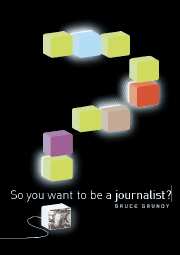Book contents
11 - Defamation
Published online by Cambridge University Press: 05 June 2012
Summary
There are two areas of law where the normal rules, that a person should be innocent until proven guilty, do not apply. One is contempt, which was covered in the last chapter. The other is defamation. In the case of defamation you are assumed to be guilty and have to prove your innocence.
Just as contempt law attempts to balance an individual's right to a fair trial with the community's right to know what is going on, so defamation sets out to juggle some very important rights and competing interests – this time the right of individuals to their reputations versus the fundamentally important issues of freedom of speech, freedom of the press, and the public's right to know.
Defamation law in Australia was changed significantly on January 1, 2006. On that day, similar (not necessarily identical) sets of rules prevailed throughout most of Australia for the very first time. Until then, there were eight sets of rules – one for each of the six states and the two territories.
Much has been said over the years about the need for uniform defamation law in Australia and thus some things have been said in favour of the new regime that came into force at the beginning of 2006. Some not so favourable comments have been made as well, because there are losers in this matter too. But uniform defamation law is in force, so there is no point complaining.
- Type
- Chapter
- Information
- So You Want To Be A Journalist? , pp. 255 - 270Publisher: Cambridge University PressPrint publication year: 2007



